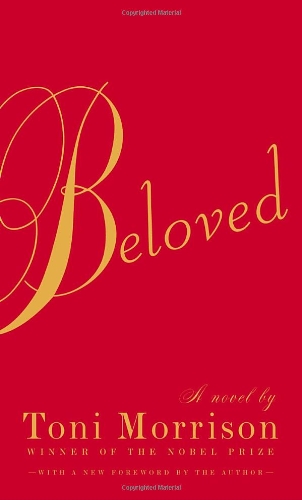
Staring unflinchingly into the abyss of slavery, this spellbinding novel transforms history into a story as powerful as Exodus and as intimate as a lullaby. Sethe, its protagonist, was born a slave and escaped to Ohio, but eighteen years later she is still not free. She has too many memories of Sweet Home, the beautiful farm where so many hideous things happened. And Sethe’s new home is haunted by the ghost of her baby, who died nameless and whose tombstone is engraved with a single word: Beloved. Filled with bitter poetry and suspense as taut as a rope, Beloved is a towering achievement.In the troubled years following the Civil War, the spirit of a murdered child haunts the Ohio home of a former slave. This angry, destructive ghost breaks mirrors, leaves its fingerprints in cake icing, and generally makes life difficult for Sethe and her family; nevertheless, the woman finds the haunting oddly comforting for the spirit is that of her own dead baby, never named, thought of only as Beloved.
A dead child, a runaway slave, a terrible secret–these are the central concerns of Toni Morrison’s Pulitzer Prize-winning Beloved. Morrison, a Nobel laureate, has written many fine novels, including Song of Solomon, The Bluest Eye, and Paradise–but Beloved is arguably her best. To modern readers, antebellum slavery is a subject so familiar that it is almost impossible to render its horrors in a way that seems neither clichéd nor melodramatic. Rapes, beatings, murders, and mutilations are recounted here, but they belong to characters so precisely drawn that the tragedy remains individual, terrifying to us because it is terrifying to the sufferer. And Morrison is master of the telling detail: in the bit, for example, a punishing piece of headgear used to discipline recalcitrant slaves, she manages to encapsulate all of slavery’s many cruelties into one apt symbol–a device that deprives its wearer of speech. “Days after it was taken out, goose fat was rubbed on the corners of the mouth but nothing to soothe the tongue or take the wildness out of the eye.” Most importantly, the language here, while often lyrical, is never overheated. Even as she recalls the cruelties visited upon her while a slave, Sethe is evocative without being overemotional: “Add my husband to it, watching, above me in the loft–hiding close by–the one place he thought no one would look for him, looking down on what I couldn’t look at at all. And not stopping them–looking and letting it happen…. And if he was that broken then, then he is also and certainly dead now.” Even the supernatural is treated as an ordinary fact of life: “Not a house in the country ain’t packed to its rafters with some dead Negro’s grief. We lucky this ghost is a baby,” comments Sethe’s mother-in-law.
Beloved is a dense, complex novel that yields up its secrets one by one. As Morrison takes us deeper into Sethe’s history and her memories, the horrifying circumstances of her baby’s death start to make terrible sense. And as past meets present in the shape of a mysterious young woman about the same age as Sethe’s daughter would have been, the narrative builds inexorably to its powerful, painful conclusion. Beloved may well be the defining novel of slavery in America, the one that all others will be measured by. –Alix Wilber
Product Features
- Toni Morrison
- Beloved
- paperback
- vintage
- 1400033411

Great poem, tedious novel Beloved is the story of Sethe, a runaway slave in the closing days of slavery, and the people around her – Beloved, the ghost of her dead baby, Denver, the remaining daughter, Paul D, her lover who also escaped from the same plantation in Kentucky, and Baby Suggs, her mother-in-law.The writing is craftful and the imagery masterful. The depiction of slavery and its malevolent effects on everyone is poignant and convincing without ever being maudlin or preachy. What could have been…
“That woman is crazy, [but] ain’t we all?” In this Pulitzer Prize-winning novel of 1988, Toni Morrison frees herself from the bonds of traditional narrative and establishes an independent style, just as her characters have freed themselves from the horrors of slavery and escaped from Kentucky to Ohio. Revealing the story of Sethe and her family as they survive the brutality of the farm, only to encounter torments even more punishing than whippings after they escape, Morrison presents scenes in a seemingly random order, each scene…